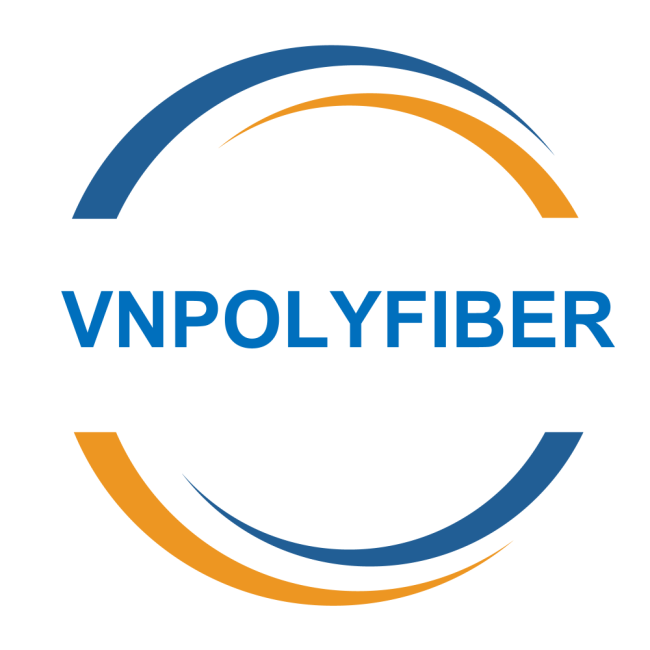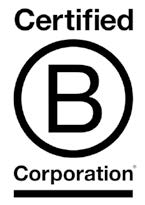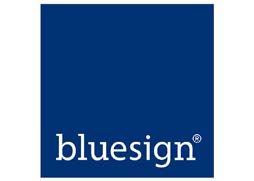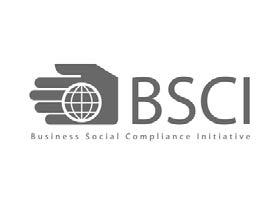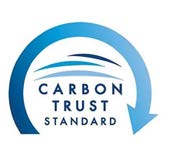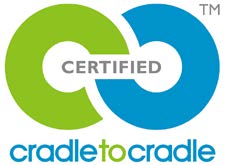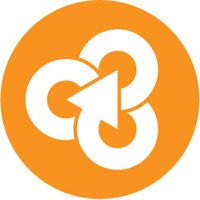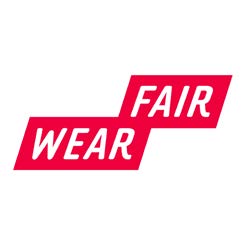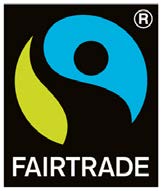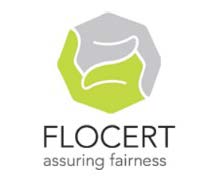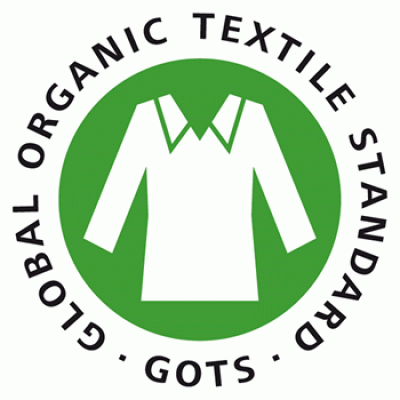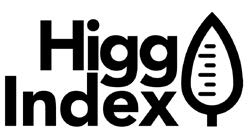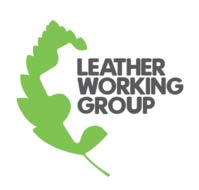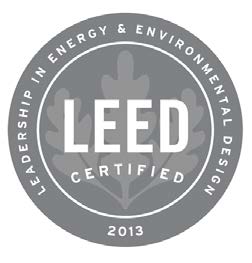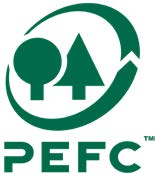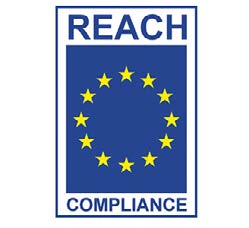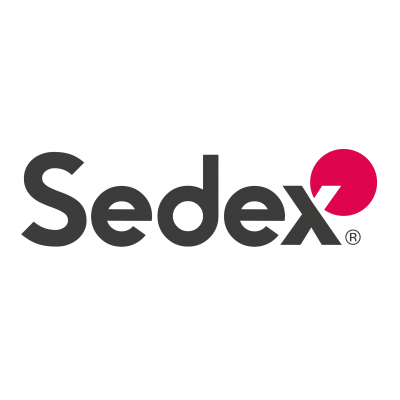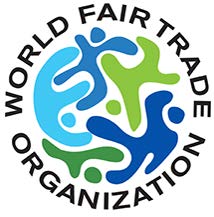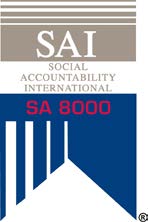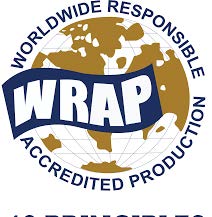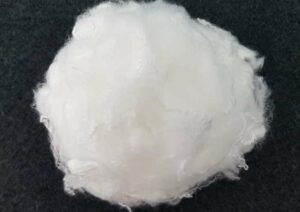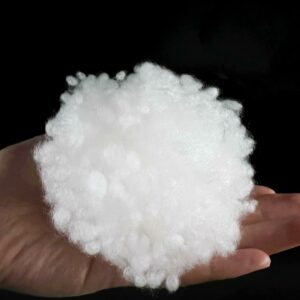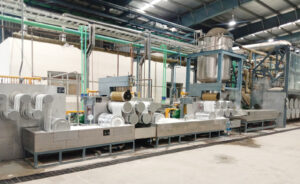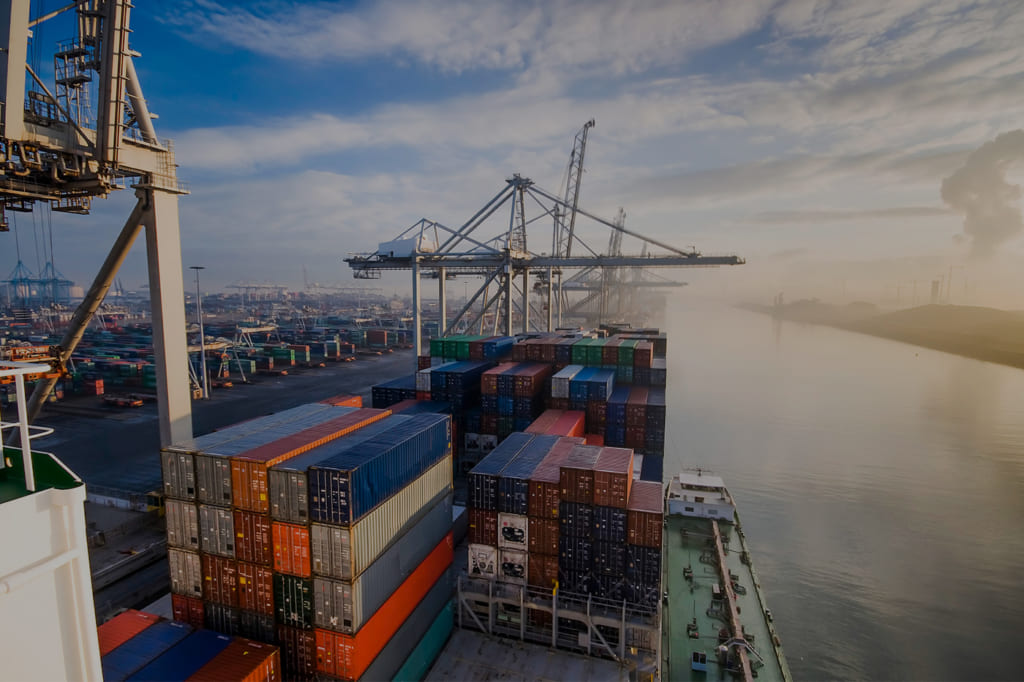Overview of B Corp certification
The B Corp certification is one of the most trusted and coveted, certifying the company’s contribution to creating a sustainable global economy while conducting business with purpose. Using a triple-bottom-line approach to ensuring people, planet and profits go hand-in-hand with business, B Corp is used in over 70 countries by over 3000 brands.
B Corp certified businesses are expected to meet the rigorous social, environmental, transparency and accountability standards set out for them, while working towards healthier jobs and communities for stakeholders throughout the supply chain.
The B Lab, a non-profit organization controls the B Corp certification. Companies must be recertified every three years to continue using the certification – a minimum score of at least 80/200 is required.
B Lab was founded in Pennsylvania, United States but have teams around the world including Canada, Australia and New Zealand.
Overview of bluesign®
bluesign® is a certification for the textile industry focusing on legal compliance in relation to environmental health and safety. The certification standard combines aspects of consumer safety, water and air emissions and occupational health, with a particular focus on the reduction of harmful substance usage at early stages of production.
bluesign® APPROVED is used for individual components including raw materials and dyes, while bluesign® PRODUCT can only be used for products with 90% bluesign® APPROVED textiles and 30 % bluesign® APPROVED accessories, requiring brands to fully commit to the certification process.
bluesign® is based in Switzerland, however there are certified companies around the world.
Overview of BSCI
BSCI stands for Business Social Compliance Initiative.
Amorfi is a global business association for open and sustainable trade. BSCI is their supply chain management system that supports companies to drive social compliance and improvements within the factories and farms in their global supply chains. BSCI implements the principle international labor standards protecting workers’ rights such as International Labor Organization (ILO) conventions and declarations, the United Nations (UN) Guiding Principles on Business and Human Rights and guidelines for multinational enterprises of the Organization for Economic Co-operation and Development (OECD).
Amorfi is based in Belgium but has an international presence, bringing together over 2,400 retailers, importers, brands and associations from more than 40 countries.
Overview of Carbon Trust Standard CTS
The Carbon Trust Standard is an independent verification for organizations that measure and reduce their environmental impact on year, against indicators including water, waste and greenhouse gas emissions.
Separate Carbon Trust Standard exist for carbon, water, waste, zero waste to landfill and supply chain. Along with verification, the CTS also consults businesses and governments to develop sustainable operations by providing specialist analysis and knowledge.
The Carbon Trust is based in the UK and has head offices in Europe, China, SE Asia, Mexico, Brazil, USA & South Africa.
Overview of Cradle to Cradle
Cradle to Cradle Certified™ is a sustainability standard that focuses on the circularity of products. Its label requires achievement across multiple attributes. These include use of materials that are safe for human health and environment, product and system design for material reutilization (such as recycling or composting), use of renewable energy and efficient use of water, and wider company strategies for social responsibility.
Cradle to Cradle™ is based in California, United States, and Amsterdam, The Netherlands, but their standard is international.
Overview of Ethical Trade Initiative (ETI)
The Ethical Trade Initiative is an organization made up of companies, NGOS and trade unions who promise to protect workers’ rights globally.
All the members of the Ethical Trade Initiative follow the Ethical Trade Initiative base code that is based on the standards of the International Labor Organization (ILO). This Code ensures child and slave labor is prohibited, living wages are paid, regular employment is provided, and workplaces are safe, amongst other conditions. Over 10 million workers are impacted by the efforts of the Ethical Trade Initiative
The Ethical Trade Initiative does not certify companies or products but ensures that its members make progress and demonstrate evidence of working towards fulfilling the conditions of the Code.
The Ethical Trade Initiative is headquartered in the UK but has members from across the globe.
Overview of Fair Wear Foundation
Fair Wear Foundation works with brands, factories, trade unions, NGOs and governments to verify and improve workplace conditions in the garment industry. Fair Wear Foundation represent over 120 brands, bringing together the key components needed for sustainable change to improve workplace conditions. Fair Wear Foundation verifies whether companies comply with its Code of Labor Practices, by keeping track of the improvements made by the companies it works with.
Every year, FWF publicly reports on the companies’ progress through the Brand Performance Checks.
Fair Wear Foundation is based in The Netherlands but works with 11 production countries across Asia, Europe, and Africa.
Overview of Fairtrade Foundation
A grassroots movement, Fairtrade Foundation is about better prices, decent working conditions, and fair terms of trade for farmers and workers in developing countries around the world.
Fairtrade Foundation works with small farmers, producers, and traders worldwide who meet strict standards.
The Mark is only used on products certified in accordance with internationally agreed Fairtrade Standards. This certification aims to empower disadvantaged producers in developing countries by tackling injustice in conventional trade.
If you meet the social, economic and environmental standards set out by Fairtrade International, you can trade under Fairtrade conditions and display the prestigious Fairtrade Mark on your products.
The Fairtrade Foundation is an international certification, however it is headquartered in London, United Kingdom.
Overview of FLOCERT
FLOCERT is the official global certification and verification body for Fairtrade International. They audit factors like wages, safe working conditions, and supply chain transparency.
Brands don’t have to include the FLOCERT logo on their products, as it’s the certifying body rather than the certification itself, but it’s common to see this logo on products and websites, so it’s good to know the difference.
Overview of Forest Stewardship Council (FSC)
FSC stands for FSC Forest Stewardship Council.
The Forest Stewardship Council is an international, non-governmental organization that certifies any product made from responsibly managed forests and/or recycled sources, using their well- known tree-tick logo.
FSC certification for fabric is particularly used for viscose that does not come from ancient or endangered forests, as well as natural latex, cork and bamboo.
The three main labels include:
- FSC 100%: All the fiber in the product comes from an FSC certified forest.
- Forest Stewardship Council Mix: A mixture of fiber from some/ all of FSC certified forests, reclaimed/ recycled fiber and virgin fiber from Forest Stewardship Council Controlled Wood.
- Forest Stewardship Council Recycled: All fiber must be pre or post-consumer reclaimed.
The Forest Stewardship Council is headquartered in Bonn, Germany but is a global certification.
Overview of Global Organic Textile Standard (GOTS)
Global Organic Textile Standard is the leading textile processing standard for organic fibers. The aim of this standard is to define worldwide, recognized requirements that ensure organic status of textiles – from harvesting of the raw materials, through environmentally and socially responsible manufacturing, and up to labelling in order to provide a credible assurance to the end consumer.
Textile processors and manufacturers are enabled to export their organic fabrics and garments with one certification accepted in all major markets. The standard covers all textiles made from at least 70% certified organic natural fibers, mainly focusing on cotton, wool and silk.
A textile product carrying the GOTS label grade ‘organic’ must contain a minimum of 95% certified organic fibers. Products with the label grade ‘made with organic’ must contain a minimum of 70% certified organic fibers.
GOTS has certification bodies that certify entities of the textile supply chain and their products. GOTS is comprised of four reputed member organizations, namely OTA (USA), IVN (Germany), Soil Association (UK), and JOCA (Japan), which contribute to GOTS, together with further international stakeholder organizations and experts.
Overview of Higg Index
The Higg Index was developed by the Sustainable Apparel Coalition (SAC) as a comprehensive range of tools to measure sustainability, covering the environment and labour, at every stage of the apparel and footwear manufacturing process. The entire supply chain footprint of a company can be scored and verified with this range of tools. The Higg Index allows companies to not only identify areas of needed improvement but also benchmark themselves against their peers, and clearly understand specific areas for improvement through every stage of the operations of the business.
Three specific modules exist — Product (measuring the product’s environmental footprint to enable designers to make better decisions), Facility (measuring performance at individual facilities) and Brand & Retail (measuring operations from conception to end-of-use for businesses of all sizes).
Sustainable Apparel Coalition (SA) is based in San Francisco, USA but is used by members from across the globe.
Overview of Leather Working Group
The Leather Working Group is an organization whose members are stakeholders, right from tanneries to retailers, in the leather supply chain.
The LWG has audit protocols to certify the environmental compliance of its leather manufacturing member – however, it does not certify farms or slaughterhouses.
To ensure that leather manufacturers do not procure leather from areas connected to deforestation, transparency from material to sale is also given importance; it is, however, rated separately from environmental compliance which is the focus.
The Leather Working Group is based in the UK but has members from across the globe.
Overview of Leadership in Energy and Environmental Design (LEED)
LEED or Leadership in Energy and Environmental Design is a certification for green building structures developed by the US Green Building Council. It provides ratings for all types of buildings (including factories) from design to maintenance across 4 levels – Certified, Silver, Gold and Platinum – and measures environmental impact areas such as energy and water use, indoor air quality, etc.
The USGBC is headquartered in Washington DC but the LEED rating system is used worldwide.
Overview of PEFC
PEFC stands for Programme for the Endorsement of Forest Certification and is an independent certifying body for sustainably managed forests and is similar to FSC. Based on international guidelines and standards as well the core ILO conventions, it is currently the largest forest certification system in the world.
It offers both sustainable forest management certification as well as chain of custody certification (for products containing forest-based material). This certification is particularly relevant to certify viscose from responsibly managed forests.
Program for the Endorsement of Forest Certification is headquartered in Geneva, Switzerland and has national certification systems in 35 countries across the globe.
Overview of REACH
REACH stands for the Regulation for Registration, Evaluation, Authorization, and Restriction of Chemicals.
It is an EU regulation, evaluated by the European Chemicals Agency (ECHA) that ensures that EU-based manufacturers identify the risks of certain chemicals to people and planet and appropriately manage them in the production of their products while communicating the same to users.
REACH certification is used to certify apparel and leather goods, particularly for dyes, tanning and finishes, which are all chemical intensive.
ECHA is based in Helsinki but REACH is used to evaluate products made across the EU.
Overview of SEDEX
SEDEX aims to provide services and a network for companies to ensure ethical sourcing practices and supply chains.
Focusing on responsible trade, and simplifying legislation for its members, SEDEX offers the SEDEX Members Ethical Trade Audit (SMETA) methodology to audit companies’ supply chains across four key areas: Labor, Health and Safety, Environment and Business Ethics.
SEDEX is headquartered in the UK but has head offices in 5 continents.
Overview of World Fair Trade Organization (WFTO)
World Fair Trade Organization is the largest global network of Fair Trade Organizations. Their direct impact includes 965,700 livelihoods supported through the operations and supply chains of these enterprises. 74% of these workers, farmers and artisans are women and women make up the majority of the leadership. They pioneer upcycling and social enterprise, refugee livelihoods and women’s leadership.
To be a WFTO member and get verified as social enterprises that practice Fair Trade, an organization must demonstrate that they put people and planet first in everything they do.
Fair Trade is more than just trading:
- It is a vision of business and trade that put people and planet before profit.
- It fights poverty, climate change, gender inequality and injustice.
- It is a proof of concept that showcases the enterprise models of the new economy.
World Fair Trade Organization is based in The Netherlands, but you can find WFTO Certified companies worldwide across 76 countries.
Overview of Woolmark
The Woolmark licensing program is a quality assurance and product certification program for wool textiles. Products with the logo certify fiber content and product quality to both consumers and the supply chain. Yarns, fabrics and garments are independently tested in order to qualify for Woolmark certification. Tests include verifying wool content of the product, color fastness to light and liquid, durability and wash testing before allowing the logo to be used.
The Woolmark logo is is one of the world’s most recognized brands. More than 5 billion products have been certified by Woolmark to date.
The three main labels include:
- Products created with 100% new wool.
- Products created with between 50% and 99.9% new wool.
- Products created with between 30% and 49.9% new wool.
Sub-brands are available within the three certification tiers to allow for bespoke fibre marketing.
The Woolmark Company is headquartered in Sydney, Australia with offices in major cities across the world.
Overview of Social Accountability International (SAI)
This social responsibility standard is a code of conduct verification and factory certification program that enables manufacturers to demonstrate social compliance to buyers.
Largely for apparel, textiles, and manufacturing, it is the leading social certification for factories to have. It shows fair treatment of workers and abides by labor provisions within the Universal Declaration of Human Rights and International Labor Organization. It does not have a consumer facing label.
Social Accountability International (SAI) is based in New York and certifies organizations in 62 countries worldwide.
Overview of Worldwide Responsible Accredited Production (WRAP)
Worldwide Responsible Accredited Production is an independent, objective, non- profit team of global social compliance experts dedicated to promoting safe, lawful, humane, and ethical manufacturing around the world through certification and education. WRAP certification is for the factories where goods are made, rather than the end product.
Worldwide Responsible Accredited Production is based in Virginia, United States, and has certified facilities around the world.
